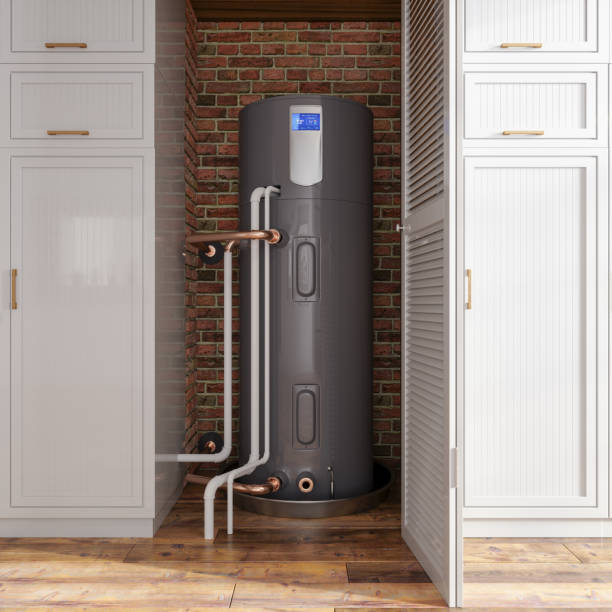A water heater is one of the most essential appliances in your home, providing hot water for showers, cleaning, and cooking. Whether you’re upgrading, maintaining, or troubleshooting your water heater, understanding its types, functionality, and upkeep can help ensure long-lasting performance and energy efficiency.
Types of Water Heaters
There are various water heaters to suit different needs and budgets:
- Tank Water Heaters: These traditional heaters store hot water in a tank and are available in gas or electric models. They are cost-effective but may run out of hot water during high demand.
- Tankless Water Heaters: Also known as on-demand water heaters, these heat water as it flows through the unit. They save energy by eliminating the need to keep water hot in a tank.
- Heat Pump Water Heaters: These use electricity to move heat from the air or ground to heat water, making them highly energy-efficient.
- Solar Water Heaters: Powered by sunlight, these eco-friendly systems can significantly reduce energy costs but require an upfront investment.
- Condensing Water Heaters: Ideal for homes that use natural gas, these units capture heat from exhaust gases to heat water efficiently.
Signs Your Water Heater Needs Attention
Like any appliance, water heaters can experience issues. Common signs that indicate a need for repair or replacement include:
- Insufficient Hot Water: If your water doesn’t get hot enough or runs out too quickly, it may be due to a faulty heating element or an undersized tank.
- Discolored Water: Rusty or murky water could signal corrosion inside the tank or pipes.
- Strange Noises: Banging or popping sounds may indicate sediment buildup at the bottom of the tank.
- Leaks: Water pooling around the heater is a clear sign of a problem, such as a cracked tank or loose connections.
- High Energy Bills: An inefficient water heater often uses more energy to maintain hot water.
Maintenance Tips for Optimal Performance
Routine maintenance is essential for extending the life of your water heater and ensuring efficiency. Here’s how to keep it in top shape:
- Flush the Tank: Sediment can accumulate at the bottom of the tank, reducing efficiency. Flushing it annually helps prevent buildup.
- Check the Anode Rod: This rod prevents rust by attracting corrosive elements. Replace it every 3-5 years to protect the tank.
- Test the Pressure Relief Valve: Ensure it’s functioning properly to avoid dangerous pressure buildup.
- Adjust the Thermostat: Set the temperature to 120°F (49°C) to save energy and prevent scalding.
- Inspect for Leaks: Regularly check the tank and connections for any signs of leaks or corrosion.
When to Repair or Replace Your Water Heater
Knowing when to repair or replace your water heater is crucial to avoid unexpected breakdowns.
Repair:
- Minor issues like a faulty thermostat, heating element, or valve can usually be repaired.
- Repairs are a good option if the unit is less than 10 years old.
Replace:
- If your water heater is over 10-15 years old and experiencing frequent problems, replacement is often more cost-effective.
- Upgrade to an energy-efficient model if your current unit no longer meets your needs.
Choosing the Right Water Heater
When selecting a new water heater, consider the following factors:
- Household Size: Choose a model with adequate capacity or flow rate to meet your family’s hot water needs.
- Energy Efficiency: Look for ENERGY STAR-rated models to save on utility bills.
- Fuel Type: Decide between gas, electric, solar, or hybrid models based on availability and efficiency.
- Budget: Factor in the initial cost, operating costs, and potential savings over time.
- Space Requirements: Ensure the unit fits the available space and meets local installation codes.
Benefits of an Efficient Water Heater
Investing in an efficient water heater brings several advantages:
- Lower Energy Bills: Modern water heaters use advanced technology to reduce energy consumption.
- Reliable Hot Water Supply: Efficient systems provide consistent hot water when you need it.
- Eco-Friendly Operation: Many new models are designed to minimize environmental impact.
- Reduced Maintenance Costs: Durable, energy-efficient units require less frequent repairs.
Professional Installation and Repair
While some maintenance tasks can be handled at home, professional installation and repair ensure safety and efficiency. Certified technicians have the expertise to:
- Install new water heaters according to manufacturer guidelines.
- Diagnose and repair complex issues like electrical faults, gas leaks, or thermostat malfunctions.
- Provide regular maintenance services, such as flushing the tank and inspecting components.
Conclusion
A reliable water heater is vital for everyday convenience and comfort. By understanding the different types of water heaters, recognizing signs of trouble, and following maintenance tips, you can extend the lifespan of your unit and maximize efficiency.
Whether you need a quick repair, routine maintenance, or a complete replacement, prioritizing your water heater’s care ensures consistent hot water for years to come. Contact a trusted professional today to keep your water heater in top condition and enjoy the comfort it provides.

